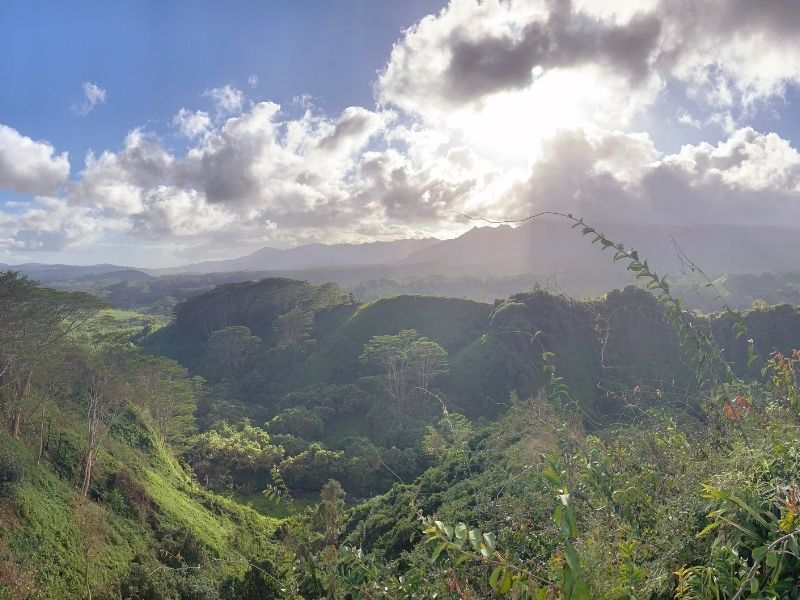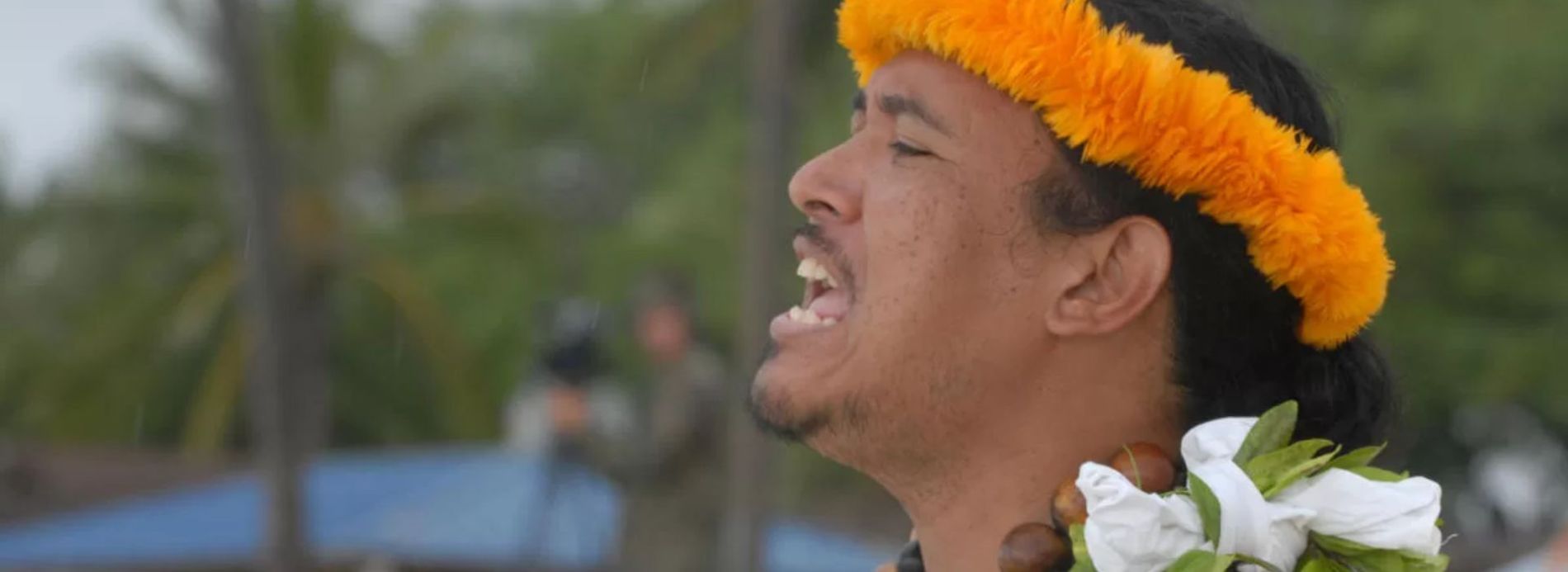Visitors to Hawaii are instantly greeted by a glowing “Aloha!” This universally known Hawaiian welcome introduces them to the wonderful and majestic islands and culture. This is just the first instance where travelers discover the traditional Hawaiian language (called ʻŌlelo Hawaiʻi).
Traveling on Kauai can be confusing, and guests are often at a loss of how to pronounce the name of a mountain or island town.
We don’t blame you! Immerse yourself in a bit of the culture, sights, and sounds outside our Waipouli Beach resort rentals, and try using a few terms on your next vacation.

There are many Hawaiian words that are regularly used and helpful to know before your next vacation here. So if someone calls you a name that doesn’t make sense or you need to know what the sign on the bathroom door means, read this quick guide to some popular Hawaiian words and meanings. Some of the terms might surprise you!
A Hui Hou: A phrase that translates to “until we meet again”.
Aloha: The common Hawaiian greeting also can mean goodbye and love, but it is mostly used as a greeting. Aloha is also a way of life for the Hawaiians, it carries a deeper meaning than just “hello and goodbye”!
Auntie/Uncle: Children, usually long-term residents, will refer to their elders as Auntie or Uncle regardless of relation in informal settings as a sign of respect. Anyone who is one generation older than the speaker would be called auntie & uncle. However, this is not used in formal settings such as work, school, government etc.
Braddah: Braddah is a variation of brother. If you hear it, someone is referring to as a friend. It may appear on greeting signs or from street vendors.
Hana hou: It literally means “to do again.” You might hear this at a live music event – it means “encore” or “one more time.” This is shouted when the crowd wants to hear one more song.
Honu: Honu is the word for the green sea turtle (or any type of tortoise or turtle). If you see the word Honu on a sign, it means there are green sea turtles in the area and that you are not to touch them under any circumstance or else face fines. The native Hawaiian green sea turtle is protected as an endangered species.
Kane: this word means “male” and is commonly seen on restrooms.
Kama’aina: This world is often reserved for individuals who have been born in Hawaii, as it translates to “child of the land.” However, one does not have to be of full native Hawaiian descent to be considered by such a word.
Kamehameha: You may see this world in Kauai a handful of times. It refers to King Kamehamaha the Great, the original ruler of Hawaii (and a popular word used in many casual seafood dishes).
Kapu: means “prohibited, forbidden, sacred, or holy,” and is understood commonly as no trespassing or keep out. You may see it on private property, sacred & archeological or burial sights, or even fruit trees.
Malihini: It simply means “stranger, foreigner, newcomer, tourist, guest, one unfamiliar with a place or custom”. You may be called Malihini, and welcomed to a Luau (a Hawaiian party)!
Pau Hana: Heard often, it refers to “finished work” or “work time is over”. Therefore is sometimes referred to on a happy hour menu as a “pau hana” drink, but it directly translates to “finished, terminated, ended, completed”.
Poke: You will often find Poke on a menu while dining. It is a common seafood item consisting of a raw fish salad that can be made in a variety of different ways.
Puka: Puka translates to “entrance.” It can also apply to doors/windows, slit, opening, gate, or enter. However, it is most commonly understood & used to mean “hole”, like a “be careful of the puka in the ground” or a “you have a puka in your shirt”.
Pupu: Some menus may refer to a list of items as Pupu which means “appetizer.”
Lanai: an outdoor patio space or balcony – most accommodations on the island have them, and it’s a perfect place to enjoy a morning or evening meal or drink.
Wahine: Wahine translates to “women,” which is commonly used on bathroom doors, particularly in small and independent local Kauai restaurants.
Wikiwiki: Wikiki translates to “fast.” If an individual is using the phrase, they can get you to your attractions quickly.
Plan Your Visit
Contact us at (888)-822-2403 for more on our Waipouli Beach resort rentals or if you have any questions about Hawaiian culture and words. While staying at our luxurious rentals, you’ll be in the perfect place to explore Kauai – often considered to be the most spiritual, scenic, and unique island of Hawaii.


